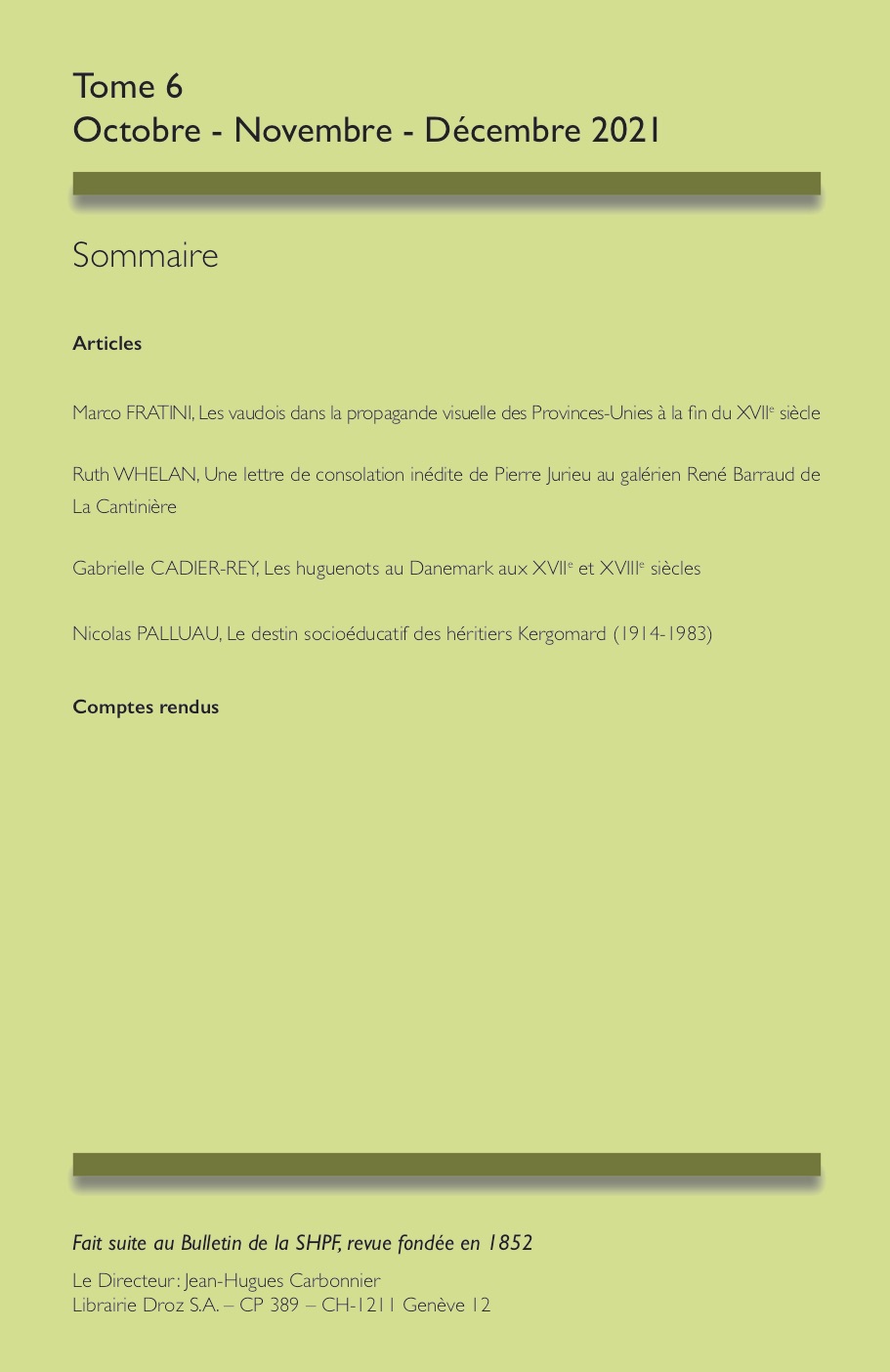Les huguenots au Danemark aux XVIIe et XVIIIe siècles
Abstract
The Huguenots who settled in Denmark during the seventeenth and eighteenth centuries have remained largely in the shadows. At the end of the seventeenth century, they represented a classic “refuge” involving both army and naval officers who joined the army of one of the Danish kings, at that time allies of Louis XIV, and craftsmen of luxury goods. Notwithstanding the vigorous opposition of the Lutheran bishops, they were on the whole well received, as witnessed by the establishment of the Reformed church of Copenhagen, which continues to be active even today. During the eighteenth century, the Danish kingdom underwent an exceptional period of growth. Francophone farmers, who came from neighbouring Brandenburg, introduced new crops to the Jutland region. Nevertheless, Denmark was particularly enriched by colonial and international trade, backed by a powerful marine force, thus attracting merchants and shipowners, among them Huguetan, Iselin, Peschier, and De Coninck. They too were Reformed and francophone, and often descended from Huguenot refugees. The French influence manifested itself in the country’s culture and arts, as witnessed by the short but important visit paid by the young La Beaumelle. But the Danish kingdom, whose commercial activities had benefited from its stated neutrality while the great European powers were at war, was to become the victim of these rivalries at the beginning of the nineteenth century and collapsed, thereby determining its economic status and its place in western Europe.
How to Cite
More Citation Formats
Most read articles by the same author(s)
- Gabrielle Cadier-Rey, Sylvie CADIER, avec la collaboration de Denise ZWILLING et Jean-François MOUHOT, Une histoire des Courmettes, 1918-2018. Les avatars d’une institution protestante, Revue d'histoire du protestantisme: Vol. 4 n° 2 (2019): Dossier & Varia
- Gabrielle Cadier-Rey, Gérard FAUCONNIER, Le génie des Frères Reclus. Élie Reclus, 1827-1904, Revue d'histoire du protestantisme: Vol. 4 n° 1 (2019): Varia
- Gabrielle Cadier-Rey, Nicole VRAY, Marguerite de Navarre. Au seuil de la Réforme, Revue d'histoire du protestantisme: Vol. 5 n° 1 (2020):

